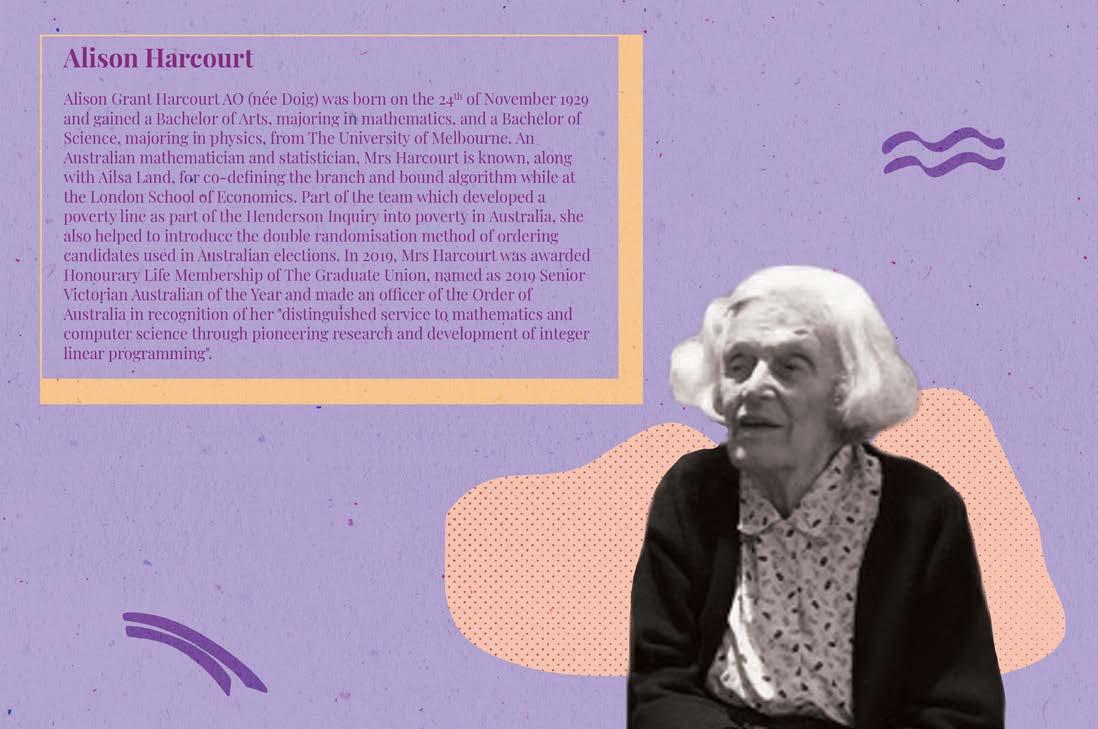
3 minute read
Coming dates
1st October – International Day of Older Persons
The United Nations International Day of Older Persons celebrates the role of older persons in making wide-ranging contributions to economic and social development. This day also challenges issues such as discrimination and social exclusion of the ageing population. Globally, there were 703 million persons aged 65 and over in 2019. Over the next three decades, the number of older persons worldwide is projected to be more than double, reaching above 1.5 billion persons in 2050.
Advertisement
2nd October – World Smile Day
The first Friday of October, World Smile Day (2 nd October) was created by a commercial artist named Harvey Ball in 1999. This day came about as a response to his creation of the smiley face in 1963. Harvey worried that the commercialisation of the symbol would lessen its impact – the symbol has been used in many different ways including clothing, comic books, coffee mugs, pins and more. These little yellow faces are more than just a symbol, they’re a statement about the power of smiling. 1 st October – International Music Day
International Music Day (IMC) was initiated in 1975 by violinist and conductor, Lord Yehudi Menuhin to encourage the promotion of music among all sections of society, and to encourage the application of the UNESCO ideals of peace and friendship between peoples and the evolution of their cultures.
5th October – World Teachers’ Day
Held annually on 5 th October since 1994, World Teachers’ Day commemorates the anniversary of the adoption of the 1966 International Labour Organization/UNESCO Recommendation concerning the Status of Teachers. This Recommendation sets benchmarks regarding the rights and responsibilities of teachers and standards for their initial preparation and further education, recruitment, employment, and teaching and learning conditions. With Sustainable Development Goal 4.c’s dedicated target recognising teachers as key to the achievement of the Education 2030 agenda, World Teacher’s Day has become the occasion to mark progress and to reflect on ways to deal with challenges of the teaching profession.
10 th October – World Mental Health Day
World Mental Health Day’s objective is to raise awareness of mental health issues around the world and mobilise efforts in support of mental health. The Day provides an opportunity for all stakeholders working on mental health issues to talk about their work, and what more needs to be done to make mental health care a reality for people worldwide.
16 th October – World Food Day
World Food Day honours the date of the founding of the Food and Agriculture Organization (FAO) of the United Nations in 1945. The FAO aims to raise levels of nutrition across the globe, improve agricultural productivity, enhance the lives of rural populations and contribute to the growth of the world economy. It also provides assistance to countries changing their agricultural policy, to aid regions out of famine situations, to help implement appropriate technology and to facilitate a neutral environment to discuss issues around food production.
17 th October – International Day for the Eradication of Poverty
The observance of the International Day for the Eradication of Poverty can be traced back to 17 th October 1987. On that day, over 100,000 people gathered at the Trocadéro in Paris, where the Universal Declaration of Human Rights was signed in 1948, to honour the victims of extreme poverty, violence and hunger. They proclaimed that poverty is a violation of human rights and affirmed the need to ensure that these rights are respected. Since then, people of all backgrounds, beliefs and social origins have gathered every year on 17 th October to renew their commitment and show their solidarity with the poor. Ending poverty is not just helping the poor – it is giving every woman and man the chance to live with dignity. By eradicating poverty, all humanity can be transformed. 24 th October – United Nations Day
United Nations (UN) Day marks the anniversary of the entry into force in 1945 of the UN Charter. With the ratification of this founding document by the majority of its signatories, including the five permanent members of the Security Council, the United Nations officially came into being. The UN was founded to support collective action to realise peace, development and human rights for all.
October –Alison Harcourt











